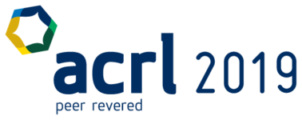Session Description:
This interactive session introduces the audience to two liaison librarians experience as mentors in a unique partnership between the library and the office of undergraduate research. The librarians served as primary faculty mentors guiding undergraduates through a summer research program focusing on the role of the libraries within various disciplines. We will discuss the challenges of mentoring outside of ones primary academic discipline, and highlight the benefits of the program. This session is relevant to librarians interested in mentorship, starting a similar program at their institutions, growing relationships with other disciplines, or becoming immersed in the the student research process.
